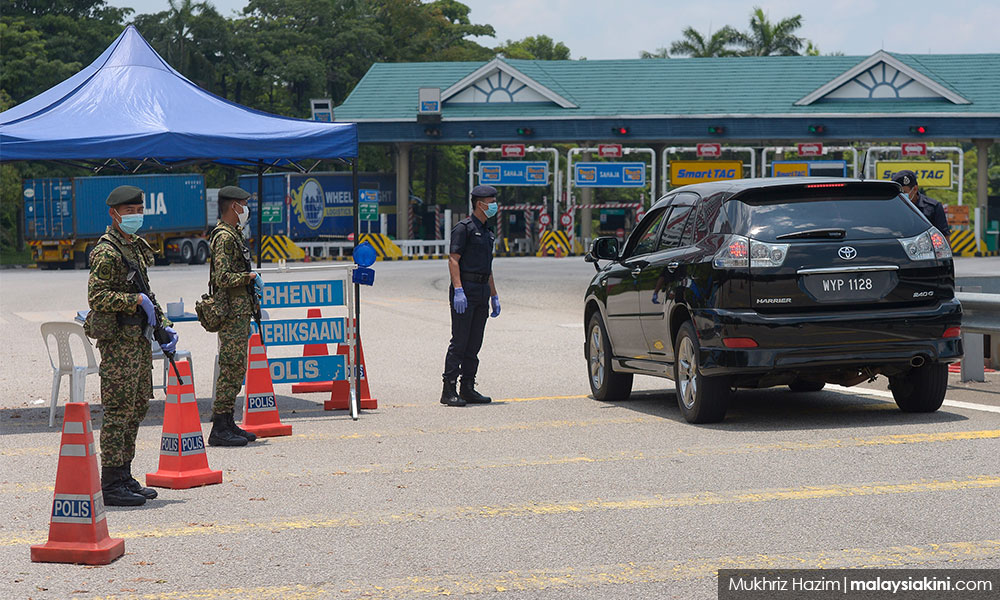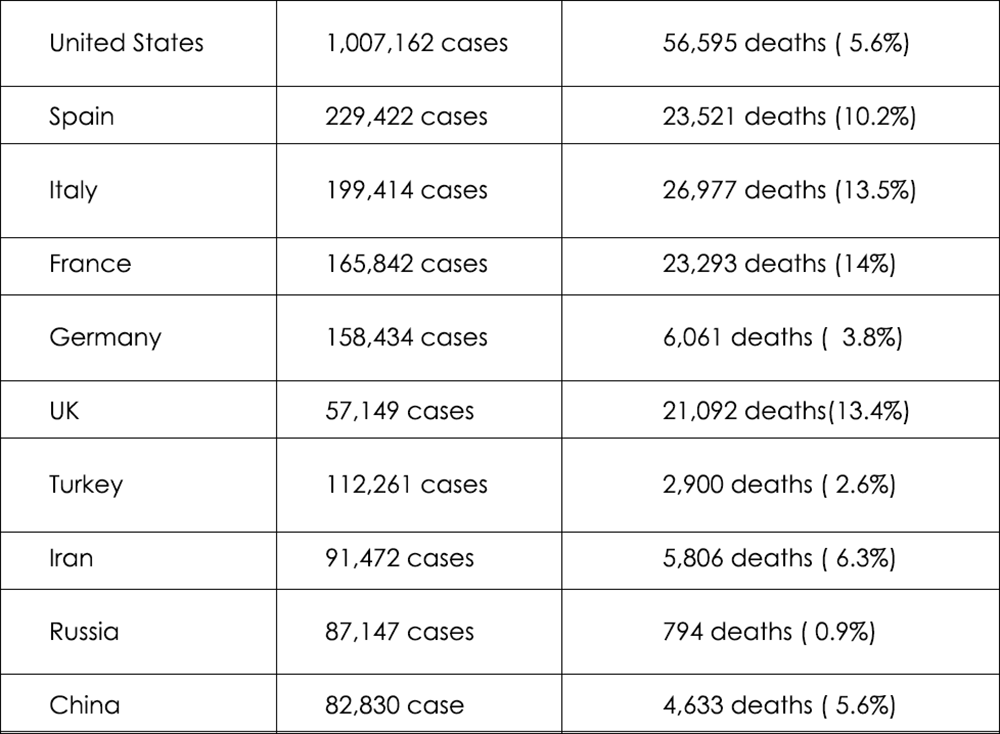MP SPEAKS | The cat is out of the bag.
According to the Health Ministry director-general Dr Noor Hisham Abdullah yesterday, the Health Ministry (MOG) had never advised nor advocated a one-day Parliamentary session which makes a complete mockery of the system of parliamentary democracy and renders utter nonsense of the parliamentary role of oversight and scrutiny of government measures in the Covid-19 pandemic.
It is clear that de facto Law and Parliamentary Affairs Minister Takiyuddin Hassan had either misunderstood or distorted MOH's advice on the Covid-19 outbreak situation.
I was right to be quite sceptical that the idea of a one-day meeting of Parliament on May 18 came from the MOH, as by April 17 - when the parliamentary secretary sent out the notice to all MPs about the one-day Parliament - the Health DG and all specialists should have suspected that the country had passed the peak of the second wave of Covid-19 outbreak as was confirmed by subsequent developments in the ensuing days.
If by March 31, I could state that “there are hopeful signs that JP Morgan’s grim projection of Malaysia peaking at 6,300 Covid-19 cases by mid-April can be proven wrong” and on April 7, I could hazard the prognosis that the peak of the second wave of Covid-19 outbreak in Malaysia had been reached on April 3rd with 3,333 cases, there is no way that the professionals in MOH led by its DG and specialists could not see the writing on the wall that the Covid-19 epidemiological curve had been flattened and that Malaysia was on the descent of the curve – completely unlike European countries such as the United Kingdom, Spain, France and Italy as well as the United States.
From the daily increase of Covid-19 cases, it was clear that the movement control order (MCO) imposed on March 18 has been effective and successful in breaking the coronavirus chain of transmission.

During the two weeks from March 18, which recorded 117 cases, to March 31, the highest daily increase reached was 235 cases on March 26.
From April 1 to April 16, the highest daily increase was recorded for the two days of April 2, when it was 208, and April 3 when it was 217. For the rest of the period, it was below 200 cases, reaching as low as 85 cases on April 15.
From April 17 onwards, the daily increase in three-digit numbers was reduced to two-digit figures.
No professional or expert in MOH worth his or her salt would have told Takiyuddin in mid-April that the Covid-19 epidemiological curve was on the upward ascent to justify a one-day Parliament on May 18 when it was in fact on a descent.
Could the Health DG and MOH specialists have misled Takiyuddin who said that the decision on the one-day Parliament was based on the ministry's advice as well as relevant specialists for the benefit and safety of all parties?
This is totally unthinkable. Either Takiyuddin did not understand the advice he was given by MOH and experts on the Covid-19 outbreak or he had deliberately distorted the advice.
I will give Takiyuddin the benefit of the doubt that he had not properly understood the advice given and that he genuinely believed that the country was facing a worsening situation when in fact the MCO had been effective and successful in breaking the Covid-19 transmission chain virus as well as flattening the infection curve although more time was needed to bring the daily increase of Covid-19 cases to single-digits.
Takiyuddin should realise that a flattened infection curve does not mean there would be zero Covid-19 cases in the country.
What the flattened infection curve would mean is that the total number of cases would be manageable and hospitals would be able to cope with the number of patients.
A proper reading of the Covid-19 situation in mid-April would be that the fourth phase of the MCO from April 29 to May 12 would be able to bring the viral outbreak under control, and there was no scientific justification whatsoever for a one-day parliamentary session on May 18.
Although Parliament, like the rest of Malaysia – in fact, the world - will have to live with a new normal in a post-Covid-19 era where social distancing will stay until an effective vaccine is developed in 12-24 months and widely available, it is even more important that Parliament should carry out its oversight and scrutiny role in the pandemic, such as through virtual Parliament and Parliamentary Select Committee proceedings.
As MOH's advice on the Covid-19 situation was gravely misunderstood and resulted in the decision to have a one-day Parliament, the cabinet at its weekly meeting tomorrow should salvage Malaysia’s reputation and that of the Malaysian Parliament to ensure that it is not the only Parliament in the world which is unable to play its role during the Covid-19 pandemic.
Instead of a one-day Parliament on May 18, it should meet for at least 10 days to provide parliamentary oversight and scrutiny of all government measures in connection with the Covid-19 pandemic.
The global face of Covid-19 pandemic has undergone great changes since the first Covid-19 case was announced in China last December.
When Malaysia launched the MCO on March 18, the top 10 countries with the most number of Covid-19 cases were China, Italy, Iran, Spain, Germany, United States, France, South Korea, Switzerland and the United Kingdom in that order.
Today, South Korea and Switzerland are out of the Top 10 nations and China from the top nation with the most number of Covid-19 cases has been moved down to the 10th position. The top 10 countries are:
Several other grim milestones have also been reached in the invisible war against the Covid-19 pandemic – the global total of cases have surpassed the three million mark, with the United States itself accounting for over a million cases or one-third of the global total.
The global death toll is well over 200,000-mark, standing now at 211,147 cases. Meanwhile, the Middle East has overtaken Asia after Europe and North America as the third region with the most number of Covid-19 cases.
This is a global invisible war and not just a local one.
This is why one of the priorities of Parliament must be the setting up of a Select Committee on Health and Social Care to monitor the Covid-19 outbreak, learning from the successes and mistakes of other countries whether China, South Korea, Japan, Taiwan, Hong Kong, Vietnam, Singapore, Indonesia, Italy, Spain, France, Germany, United Kingdom, the United States, Turkey, Iran or Saudi Arabia.
Iran is going to follow Malaysia’s colour-coding programme by dividing the country into white, yellow and red regions based on the number of infections and deaths in its plan to loosen lockdown restrictions.
We must help to develop best practices in the invisible war against Covid-19 and stay clear of the bad practices like the ridiculous notion of a one-day Parliament.
This, in fact, should be the proper attitude for all countries as the Covid-19 outbreak is a global pandemic and not a localised problem and every country is grappling with the challenge of how best to operate in this uncharted territory.
LIM KIT SIANG is member of Parliament for Iskandar Puteri.
The views expressed here are those of the author/contributor and do not necessarily represent the views of Malaysiakini.


